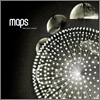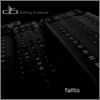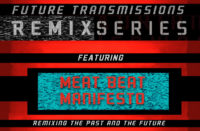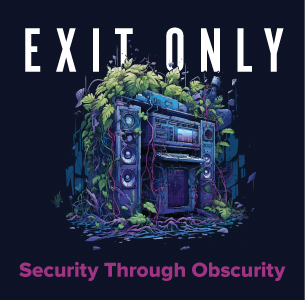
::..:::…..:..::….:::::..:::..:::::::……:::…::.:::….::::..:..:::…::…….::::
 Something is seriously wrong with the state of music when even the chill-out room becomes a bummer. Perhaps I’m dating myself here (do they even have chill-out rooms anymore?), but it was the one place where everything would be calm, no matter how oppressive or sweaty things were in the dance room. Hence the name of the refuge, the sound of a new genre, the classic (and still damn fine) KLF record. With Unomia and Eingya, the two previous works released by Keith Kenniff (aka Helios and the more classically-oriented Goldmund), it seemed like downtempo, chill-out electronic music was getting a much needed melodic shot in the arm, a new soundtrack. Anticipation, for this writer at least, was high when Ayres was announced. And the result? Total betrayal. This is a lazy attempt at writing songs when Kenniff’s strengths were always in crafting tracks. And yes there is a serious difference. Each of the six tracks here “features” Kenniff’s voice, an instrument best left silent, its fey whispering coo more suited to local bands covering early Belle and Sebastian songs than the tepid “beats” and hazy electronics of “A Rising Wind” or “Woods and Gives Away.” “Soft Collared Neck,” the track most reminiscent of Kenniff’s work as Goldmund, would have worked as a Goldmund track, with a lilting piano line (but aren’t all Goldmund piano lines “lilting” ?). Here though, a whispered monologue with a tiny hint of melody complains about something indistinct, probably a break-up, just ruins what would have been a nice piano and reverb track. And in perhaps the most egregious example of lame cover material, Kenniff picks that hoary chestnut “In Heaven” from Eraserhead. Even goths stopped covering this years ago. In a way, Ayres is interesting, in that over its 27 minutes, a once-promising artist completely self-destructs and ruins any goodwill built up in an audience. And while I’m all for a nice little schadenfreude every now and then, this one hurts. There is no pleasure to be gained even in tearing this record apart, there were so many bad decisions made and wrong directions taken here. [Purchase
Something is seriously wrong with the state of music when even the chill-out room becomes a bummer. Perhaps I’m dating myself here (do they even have chill-out rooms anymore?), but it was the one place where everything would be calm, no matter how oppressive or sweaty things were in the dance room. Hence the name of the refuge, the sound of a new genre, the classic (and still damn fine) KLF record. With Unomia and Eingya, the two previous works released by Keith Kenniff (aka Helios and the more classically-oriented Goldmund), it seemed like downtempo, chill-out electronic music was getting a much needed melodic shot in the arm, a new soundtrack. Anticipation, for this writer at least, was high when Ayres was announced. And the result? Total betrayal. This is a lazy attempt at writing songs when Kenniff’s strengths were always in crafting tracks. And yes there is a serious difference. Each of the six tracks here “features” Kenniff’s voice, an instrument best left silent, its fey whispering coo more suited to local bands covering early Belle and Sebastian songs than the tepid “beats” and hazy electronics of “A Rising Wind” or “Woods and Gives Away.” “Soft Collared Neck,” the track most reminiscent of Kenniff’s work as Goldmund, would have worked as a Goldmund track, with a lilting piano line (but aren’t all Goldmund piano lines “lilting” ?). Here though, a whispered monologue with a tiny hint of melody complains about something indistinct, probably a break-up, just ruins what would have been a nice piano and reverb track. And in perhaps the most egregious example of lame cover material, Kenniff picks that hoary chestnut “In Heaven” from Eraserhead. Even goths stopped covering this years ago. In a way, Ayres is interesting, in that over its 27 minutes, a once-promising artist completely self-destructs and ruins any goodwill built up in an audience. And while I’m all for a nice little schadenfreude every now and then, this one hurts. There is no pleasure to be gained even in tearing this record apart, there were so many bad decisions made and wrong directions taken here. [Purchase]
::..:::…..:..::….:::::..:::..:::::::……:::…::.:::….::::..:..:::…::…….::::
 Something isn’t right here. Actually a lot isn’t right with Starchaser Network. First, the vocals, which trys to match the staccato delivery of Gary Numan with the raunch and sex of Thrill Kill Kult’s Frankie Nardiello. Hear this disaster on “Patricia Whackers.” Not working. Second, the look, which approximates Megadeth’s Dave Mustaine and Suicide’s Alan Vega’s love child. There’s three versions of this idea on the inside flap of the album. Nope, not working. Third, the music, Kraftwerk and Nitzer Ebb with guitars. Sorry fellas, it just does not work when you do it. Others might be more successful with any of these formulas, but Starchaser chooses to emphasize exactly the wrong elements each and every time. On “New York U Know,” a passable slab of pulsing dancefloor EBM, vocalist Proscriptor (an alias?) channels Clock DVA’s Adi Newton (this is a good thing), but only to chant “breakdown” and spout BS like “the skyline is so high” and, nonsensically, “state of mind.” See, it makes no sense. Nothing on this album makes any sense, none of it sounds complete, and none of it sounds like anyone who would provide an honest opinion of the music within was given a chance to listen to this album before it was released. Press materials for this album describe it as “the perfect soundtrack to a pornographic movie or a NASA documentary.” That really doesn’t leave much else to say, except to point out just how stupid that sounds, even for press-release gibberish. This is the low point of 2007. [Purchase
Something isn’t right here. Actually a lot isn’t right with Starchaser Network. First, the vocals, which trys to match the staccato delivery of Gary Numan with the raunch and sex of Thrill Kill Kult’s Frankie Nardiello. Hear this disaster on “Patricia Whackers.” Not working. Second, the look, which approximates Megadeth’s Dave Mustaine and Suicide’s Alan Vega’s love child. There’s three versions of this idea on the inside flap of the album. Nope, not working. Third, the music, Kraftwerk and Nitzer Ebb with guitars. Sorry fellas, it just does not work when you do it. Others might be more successful with any of these formulas, but Starchaser chooses to emphasize exactly the wrong elements each and every time. On “New York U Know,” a passable slab of pulsing dancefloor EBM, vocalist Proscriptor (an alias?) channels Clock DVA’s Adi Newton (this is a good thing), but only to chant “breakdown” and spout BS like “the skyline is so high” and, nonsensically, “state of mind.” See, it makes no sense. Nothing on this album makes any sense, none of it sounds complete, and none of it sounds like anyone who would provide an honest opinion of the music within was given a chance to listen to this album before it was released. Press materials for this album describe it as “the perfect soundtrack to a pornographic movie or a NASA documentary.” That really doesn’t leave much else to say, except to point out just how stupid that sounds, even for press-release gibberish. This is the low point of 2007. [Purchase]
::..:::…..:..::….:::::..:::..:::::::……:::…::.:::….::::..:..:::…::…….::::
 I really used to love glitch. I mean totally. I bought into the idea that the future of music lay in microscopic sound, and Oval’s compact disc manipulations. Around the time of Clicks and Cuts 3, I realized that glitch is a dead-end genre, its ultimate conclusion being found in the silence of absolute noise. If we draw glitch’s arc as beginning in isolationist ambient and ending with Autechre’s Untilted, we see the problem. It is “boring.” It communicates displeasure both with itself and with the listener. I mean seriously. Does anyone really enjoy listening to glitch besides for their own intellectual fulfillment? This is not a genre designed to give pleasure. If no-fun is your thing, then more power to you, my head isn’t in that place anymore and glitch isn’t my thing anymore.
I really used to love glitch. I mean totally. I bought into the idea that the future of music lay in microscopic sound, and Oval’s compact disc manipulations. Around the time of Clicks and Cuts 3, I realized that glitch is a dead-end genre, its ultimate conclusion being found in the silence of absolute noise. If we draw glitch’s arc as beginning in isolationist ambient and ending with Autechre’s Untilted, we see the problem. It is “boring.” It communicates displeasure both with itself and with the listener. I mean seriously. Does anyone really enjoy listening to glitch besides for their own intellectual fulfillment? This is not a genre designed to give pleasure. If no-fun is your thing, then more power to you, my head isn’t in that place anymore and glitch isn’t my thing anymore.
Doofgoblin, aka John Gulino, has been praised on this site for previous efforts,
and to other ears, his contributions to this split cd may be considered groundbreaking. But for me, the fractured minor-key Autechre-isms of “Stoop”, “Starling”, and especially “Keeer” simply do not pass muster anymore. Pick any track from LP5. That’s what Doofgoblin sounds like. And again, for some, that’s fantastic. I recognize the work that went into creating these tracks, and I appreciate the difficult path chosen by Gulino’s muse for him to follow. But I’ve grown out of glitch, and don’t need to spend my time with yet another second-rate Booth & Brown disciple. A Drop In Silence mine similar territory with their half of this cd, pushing the Booth/Brown preset button a whole bunch of times, but with better results. ADIS are a little more up-tempo, a little more conventional, more Tri Repetae than Draft 7:30. The playful melodics and nimble percussives of “Fuzzy Thought” would make that track a fine contribution to tracks that should have come out on Warp in 1997. “Gristle Edge” updates the classic industrial dance of 1988 Chicago, with machine-gun blastbeats and an atmosphere of intense malaise. “Stop Down”, the closer, interrogates the IDM sound from the turn of the millennium with skittering beats and KAOSS-pad synth manipulations. The four ADOS tracks that close this split are the better part of the pairing. Would that they had done a full-length instead. [Purchase]
::..:::…..:..::….:::::..:::..:::::::……:::…::.:::….::::..:..:::…::…….::::
 Saxophone and Fairlight Synthesizer proponent Robert Vincs expands on the fourth-world ambient music pioneered by Brian Eno and Jon Hassell with “Devic Kingdom”. Recorded
Saxophone and Fairlight Synthesizer proponent Robert Vincs expands on the fourth-world ambient music pioneered by Brian Eno and Jon Hassell with “Devic Kingdom”. Recorded
at various sacred sites in Australia’s Victorian Highlands in one take, Vincs captures a sense of meditation and transcendence in each track. Just where Vincs fits in the
saxophone hierarchy I’m not really sure (who knows where anyone really fits, post-Coltrane, anyway?), but his fluid technique could easily bridge the gap between classic Film Noir soundtracks and world music. “Avatar” expresses this genre mashup perfectly, with a lively sax improvisation over what sounds like mutated didgeridoos and circular-breathing chants. “Avatar” creates a mood that is simultaneously quite exciting and truly strange. This holds true for most of the record, this strangely exciting mood. Devic Kingdom isn’t made up of songs, per se, more improvisatory mood pieces that, when taken in together, evoke a time and place almost completely alien to modern, everyday existence. [Purchase]
::..:::…..:..::….:::::..:::..:::::::……:::…::.:::….::::..:..:::…::…….::::
 They say that an artist has their entire life to create their first album. Documentary is Vega’s first album, and from the sound of it, he’s had some very diverse experiences
They say that an artist has their entire life to create their first album. Documentary is Vega’s first album, and from the sound of it, he’s had some very diverse experiences
from which to draw inspiration. The fifteen tracks collected here apparently were live scores for short films, some of which were his own Super-8 productions. And normally the
tag of soundtrack music in the electronic scene is the kiss of death, but here Vega crosses enough genre boundaries to avoid being tagged. Documentary mixes short tracks
with longer ones, pieces evoking Brian Eno and mid-70s Tangerine Dream. Vega appears to have done his homework, at least with electronic music history — he sounds like
he was influenced by the classics (Eno, T. Dream, Moroder, Biosphere, etc.), and refreshingly, does not sound in any way like he was influenced by Autechre (it’s good to know that Booth and Brown haven’t infected everyone yet). At times embracing the minimal 80s synths and ambient-motorik of Cluster (“Playlite”), or the industrial electronics of Brad Fidel (“4 Autiim”), Vega creating moods more than writes songs, and succeeds by keeping his pieces at the right length, mostly succinct, but stretching out to around five minutes when the music calls for it. Its a nice, balanced record that works both as background ambient and detailed listening. Recommended. [Purchase]
::..:::…..:..::….:::::..:::..:::::::……:::…::.:::….::::..:..:::…::…….::::
 I tried, I really did. I thought We Can Create would be right up my alley. Neo-shoegazer James Chapman, working in his midlands-England bedroom on a 16-track, diligently built his legend through a series of singles and EPs, holding off on releasing an album
I tried, I really did. I thought We Can Create would be right up my alley. Neo-shoegazer James Chapman, working in his midlands-England bedroom on a 16-track, diligently built his legend through a series of singles and EPs, holding off on releasing an album
until the hype got too loud to ignore. Create is the full length result, a not-quite-successful mishmash of fuzzy guitars and lazy songwriting. And it starts with promise, the anthem-that-will-never-be “So Low, So High,” with a sweeping melody and sing-along chorus. But then Create falls flat on its fuzzed-out face, with “You Don’t Know Her Name,” which sounds like something MBV would have tossed off in an afternoon and thrown away in 1988. The rest of the eleven tracks act as further examples of these two extremes — one great, one terrible. Overall, We Can Create comes off as a bland middle ground between awesome and atrocious. And the lack of any tonal variety on the album makes it grate after a while. I like the first track quite a bit, but didn’t want to hear it ten more times with slightly different music and lyrics. Mix it up, Maps, and next time I’ll plot out a route to check you out further. [Purchase]
::..:::…..:..::….:::::..:::..:::::::……:::…::.:::….::::..:..:::…::…….::::
 Um, wow. I love getting blown away by an album or a band that I’ve never heard of before. It doesn’t happen that much anymore, and with more music being released every year than the year before, the signal-to-noise ratio gets lower and finding awesome bands or albums gets harder. Fallto by Drifting In Silence (aka Derrick Stembridge) makes sorting through the dreck worthwhile, with a sound wavering between industrial (“Chameleon” and its two remixes) epic, cinematic ambient dance (“Pretend,” “Meaning of Life”), and grand cathedrals of sound (“Closure”). Embracing Autechre, Tangerine Dream and lesser bands on the Wax Trax! label (Borghesia or Pankow, maybe?) as influences, Stembridge blends their respective aesthetics together and spits back a stone classic. We’re getting close to the end of the year, and I know this one will be near the top of my list. The only problem with Fallto is that its too short! Cutting the two remixes (which are mostly extraneous, although the “Drev Remix” is a real EBM stomper) at the end, this runs only 40 minutes. And while that’s enough to whet my whistle, I wish there was more. Excellence like this doesn’t come along that often. [Purchase]
Um, wow. I love getting blown away by an album or a band that I’ve never heard of before. It doesn’t happen that much anymore, and with more music being released every year than the year before, the signal-to-noise ratio gets lower and finding awesome bands or albums gets harder. Fallto by Drifting In Silence (aka Derrick Stembridge) makes sorting through the dreck worthwhile, with a sound wavering between industrial (“Chameleon” and its two remixes) epic, cinematic ambient dance (“Pretend,” “Meaning of Life”), and grand cathedrals of sound (“Closure”). Embracing Autechre, Tangerine Dream and lesser bands on the Wax Trax! label (Borghesia or Pankow, maybe?) as influences, Stembridge blends their respective aesthetics together and spits back a stone classic. We’re getting close to the end of the year, and I know this one will be near the top of my list. The only problem with Fallto is that its too short! Cutting the two remixes (which are mostly extraneous, although the “Drev Remix” is a real EBM stomper) at the end, this runs only 40 minutes. And while that’s enough to whet my whistle, I wish there was more. Excellence like this doesn’t come along that often. [Purchase]
::..:::…..:..::….:::::..:::..:::::::……:::…::.:::….::::..:..:::…::…….::::




















